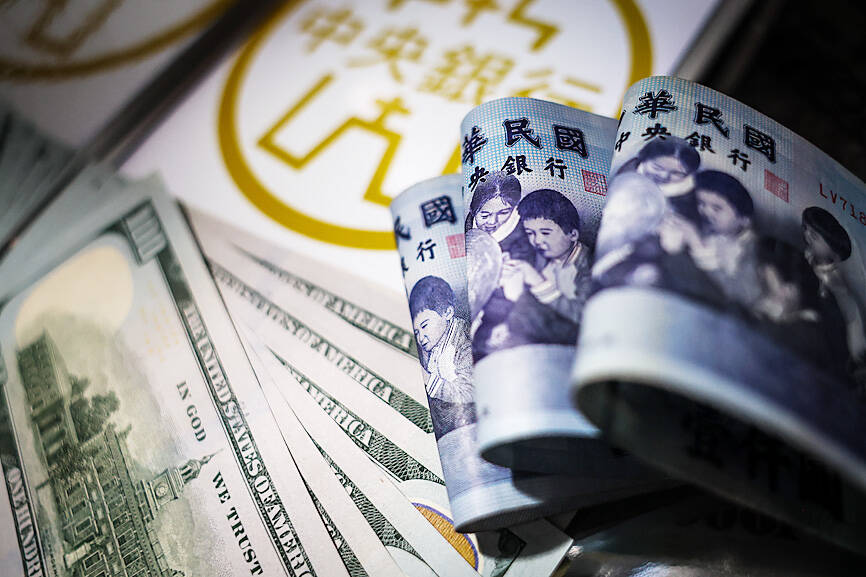Taiwan ranked the sixth-largest net creditor in the world last year, down one spot from 2023, in the wake of a strong showing by the local stock market, which boosted the nation’s liabilities and pushed down its net international investment position (NIIP), the central bank said on Friday.
Taiwan’s external financial assets totaled US$3.03 trillion at the end of last year, up US$148.17 billion, or 5.1 percent, from a year earlier, central bank data showed.
The country’s external financial liabilities reached US$1.48 trillion, up US$301.15 billion, or 25.6 percent, from a year earlier, which the central bank attributed to the value of equities owned by foreign institutional investors.

Photo: CNA
The difference between Taiwan’s external financial assets and liabilities at the end of last year reached US$1.56 trillion, down US$152.98 billion, or 9 percent from a year earlier, positioning Taiwan as the world’s sixth-biggest net creditor, the data showed.
A country’s international investment position is the balance sheet of residents’ financial assets held in the rest of the world and liabilities to the rest of the world.
The NIIP is the difference between a country’s external financial assets and its external financial liabilities.
Germany was the No. 1 net creditor, with an NIIP of about US$3.64 trillion as of the end of last year, ahead of Japan at US$3.49 trillion, China at US$3.3 trillion, Hong Kong at US$2.04 trillion and Norway at US$1.74 trillion, the central bank said.

South Korea’s equity benchmark yesterday crossed a new milestone just a month after surpassing the once-unthinkable 5,000 mark as surging global memory demand powers the country’s biggest chipmakers. The KOSPI advanced as much as 2.6 percent to a record 6,123, with Samsung Electronics Co and SK Hynix Inc each gaining more than 2 percent. With the benchmark now up 45 percent this year, South Korea’s stock market capitalization has also moved past France’s, following last month’s overtaking of Germany’s. Long overlooked by foreign funds, despite being undervalued, South Korean stocks have now emerged as clear winners in the global market. The so-called “artificial intelligence

NEW IDENTITY: Known for its software, India has expanded into hardware, with its semiconductor industry growing from US$38bn in 2023 to US$45bn to US$50bn India on Saturday inaugurated its first semiconductor assembly and test facility, a milestone in the government’s push to reduce dependence on foreign chipmakers and stake a claim in a sector dominated by China. Indian Prime Minister Narendra Modi opened US firm Micron Technology Inc’s semiconductor assembly, test and packaging unit in his home state of Gujarat, hailing the “dawn of a new era” for India’s technology ambitions. “When young Indians look back in the future, they will see this decade as the turning point in our tech future,” Modi told the event, which was broadcast on his YouTube channel. The plant would convert

‘SEISMIC SHIFT’: The researcher forecast there would be about 1.1 billion mobile shipments this year, down from 1.26 billion the prior year and erasing years of gains The global smartphone market is expected to contract 12.9 percent this year due to the unprecedented memorychip shortage, marking “a crisis like no other,” researcher International Data Corp (IDC) said. The new forecast, a dramatic revision down from earlier estimates, gives the latest accounting of the ongoing memory crunch that is affecting every corner of the electronics industry. The demand for advanced memory to power artificial intelligence (AI) tasks has drained global supply until well into next year and jeopardizes the business model of many smartphone makers. IDC forecast about 1.1 billion mobile shipments this year, down from 1.26 billion the prior

People stand in a Pokemon store in Tokyo on Thursday. One of the world highest-grossing franchises is celebrated its 30th anniversary yesterday.